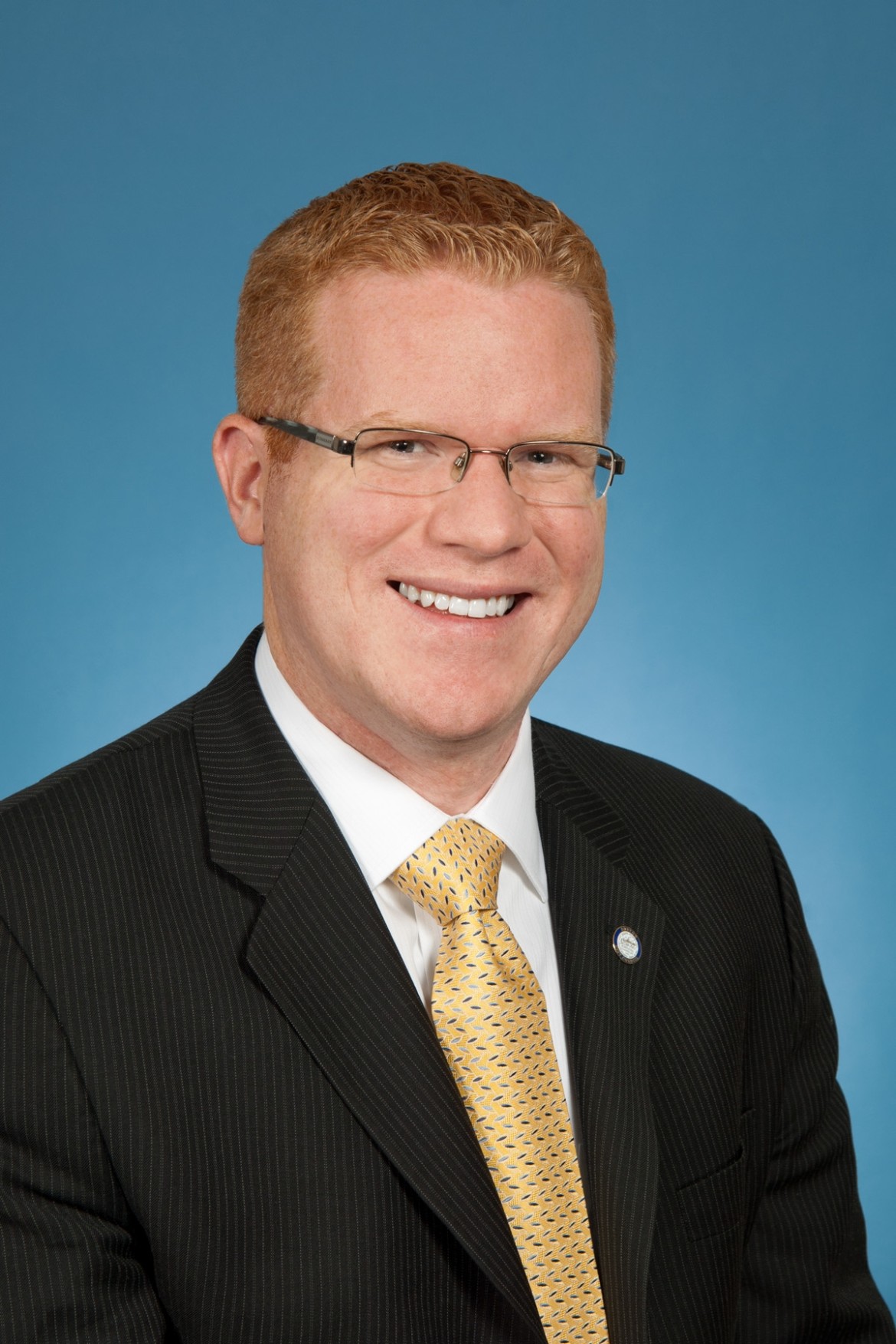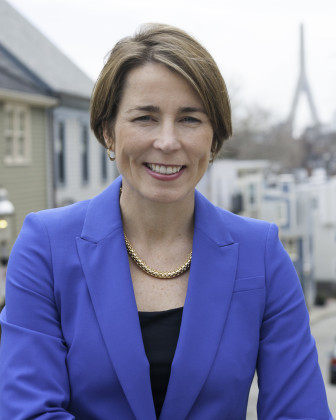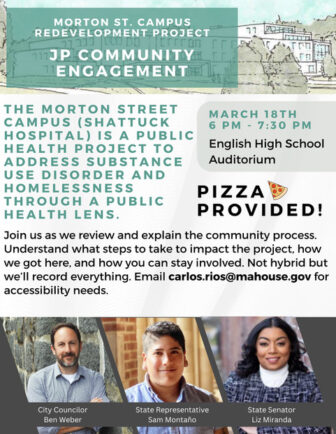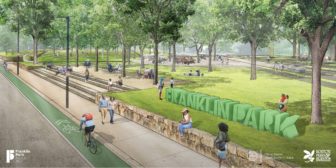Last updated on March 2, 2018
To compost or not to compost — District 6 City Councilor Matt O’Malley knows the answer. That’s not the only answer Jamaica Plain’s city councilor recently provided to Jamaica Plain News in a ranging interview.

Q: Your ordinance to ban single-use plastics bags was approved by the city council in November and signed into law by Mayor Walsh. When will it take effect and how will businesses be informed about what they need to know?
O’Malley: It’s slated to take effect one year after its passage from the date the mayor signed it into law, which was December 15th. So it goes into effect December 15th, 2018. But January 1, 2019, is more when we expect everybody to be up and running and compliant.
We wanted a year of preparation. That was something that city councilors and people from around the country said made sense. For public awareness we are working with the community to make sure they have access to reusable bags, and making sure that people understand the ordinance. (The week of Feb. 19-23) we had a working session with the city’s Environmental Department, the Boston Housing Authority, the Elderly Commission and the Main Streets director for the entire city. We want to do a working session meeting every other month leading up to December 15th to make sure we have public awareness. I’ve asked the city to have a website up in the next month to explain the law, how to comply and provide FAQs.
I’m humbled that so many people are excited by the ordinance. Businesses have expressed they want to make it work and they don’t like the litter of plastic bags. This will save taxpayers money. It’s a point I’ve tried to make. There was talk about having to pay 5 cents for each bag, but I would say we spend more on our Parks Department and DPW picking up these bags every day and getting rid of the litter. It also will allow businesses, elected officials and others, to really help promote branding, which is why we gave out 1,000 reusable bags on Election Day. And I will happily give them out to anyone who wants one. All you have to do is tweet at me.
Q: You will not give up on wanting the city to provide street side compost pick-up. What is the status of your legislation and what will it take to become law?
O’Malley: I’m hopeful the fourth time is the charm. Councilor Ayanna Pressley and I introduced legislation that would allow for curbside compost pickup for the city. This is a strategy that more and more cities are employing to help achieve the goal of net zero waste.
Across the river in Cambridge they began a piloted curbside compost pickup years ago. It was so successful that they expanded the program citywide. As such, I think Jamaica Plain would be a prime candidate to pilot curbside compost and I’m hopeful that would lead to a citywide effort. Curbside compost is important because it diverts trash from our waste stream and can be used as fertilizer in city parks, playgrounds and the public is able to use it as well. We spend something like $88 per ton of every ton of trash that is picked up. The less we spend on that, the more we can use to promote programs like this that cost pennies on the dollar and we can talk more about composting and recycling. This is another example of an environmental initiative that would be good for the taxpayers if done right. I have often said that every fiscal conservative ought to be an environmentalist, too. As we’ve seen with plastic bags, or gas leaks, strong environmental initiatives often mean real cost savings to the public.
Q: You were living in JP and you bought a home a house in West Roxbury. Why West Roxbury and not Jamaica Plain?
O’Malley: I mean (laughs). I love all my neighborhoods equally. We were looking in District 6 and this is the house we found. It’s as close to the center of my district as I could find.
Q: Your gas leaks ordinance took effect last July for Boston to receive real-time info on leaks and GPS mapping techniques, so when the city is doing work, utility companies can check for leaks where the construction is happening. Has the ordinance been able to decrease the amount of gas leaks in the city? How has it been working? Is there data that the public can see?
O’Malley: No (data). Unfortunately, utilities have filed suit to prevent the implementation of our gas leaks ordinance. National Grid has filed suit. I don’t believe Eversoruce is in the suit.
It’s currently in litigation. It is incredibly disappointing because it is something that was worked on and got to the heart of fixing the 4,000 to 5,000 gas leaks in the city. Instead of working to address these public health and safety issues the utility company has chosen to prevent its implementation by filing suit. I hope we will be vindicated in court, just as (the Boston City Council) passed it unanimously.
The purpose of the ordinance was to provide transparency and be mindful of the fact there are privacy issues, which we would respect. It’s to setup a timeline of reclassification of gas leaks and allow for the city to recoup costs on the myriad of trees destroyed by these gas leaks. It would better coordinate if a street is open for work like when Fios is doing something, or there’s repaving — we could let utility companies know about it to fix leaks. These are common sense ideas that are not only going to protect the public. My desire to fix gas leaks has never been stronger. We’re going to continue to fight every step of the way.
Q: Were the utility companies involved in creating the legislation? Was there any inkling of a lawsuit?
O’Malley: All stakeholders were involved (in the process of developing the legislation). Utility companies had a seat at the table. This is something there was a good faith effort with a plan that was feasible. There were threats up until passage about the utility companies filing suit.
Q: Why do you think the utility companies are fighting the legislation?
O’Malley: I can’t speculate for them. They may say the legal argument is that every city and town can’t have different rules for fixing gas leaks. But there are 351 municipalities in Massachusetts and we make laws for all issues across every municipality regarding streets.
Q: One of the biggest issues in JP is development and that there is not enough housing, particularly housing that is affordable. How can that change and what can the city council do to help?
O’Malley: I would amend your question, as we’re seeing it everywhere. One thing that makes me proud to represent JP, is there’s a real desire to encourage affordability. As a community there was a robust, and contentious process, for the JP/Rox Plan. We significantly pushed for affordable housing development for 22, 25 and 30 percent. It nearly doubles citywide numbers (of affordable units required for developments).
To the idea of a trickle down housing policy, and that the more we build, the problem of affordability and scarcity will fix itself — we are seeing luxury condos and units as the most common types of development. The question is how do we get a working class family to buy a home, or rent a home and grow roots here? The council can do things like the Just Cause Eviction law that we passed last year. It’s a home-rule petition that is now at the State House that was signed by Mayor Walsh. It allows more tenants’ rights.
The more immediate thing we can do is work with developers as they build. Two projects come to mind that were controversial: 161 South Huntington Avenue and 3200 Washington Street. I ultimately supported those because in both cases they put close to 25 percent affordable units on site. That is a remarkable feat. You often have developers paying into the Inclusionary Development Fund, and not having the units on site, but paying into something. That’s something that more elected officials ought to be working on.
Right now we’ve been working with small businesses that have been displaced and we’ve had some success. It’s important that we’re able to make sure that there are opportunities for economic diversity in the city. Our diversity is our strength and we want to make sure that working families, middle-income and low-income individuals and families can thrive here. Another piece is making sure we have a reliable public transit system, which in my opinion, we don’t have right now. I hope that the Millionaire’s Tax will be on the ballot, because it would provide significant resources for public transit.
Q: There have been several developers who have proposed projects that would include units deemed affordable as mandated by the city — but abutters and residents resist the size of the project and thus the developer scraps their original plan and makes something that’s as-of-right and the project loses the affordable units. Are residents standing in their own way of providing affordable housing to the neighborhood?
O’Malley: The two examples that I just cited — 3200 Washington Street and 161 South Huntington Avenue, were both opposed by some neighbors, not all neighbors, but it was because of the density and height. My support of them came because they exceeded the affordable housing component. I wouldn’t go so far to say that residents are standing in their own way because I do think that having residents voice their concern typically leads to a better project. But I do think we need to do what we can in many cases to increase affordability, even if it means more density. I wouldn’t generalize that people are standing in their own way because it is a delicate balance and the pushback of neighborhoods — and I say this from someone who has supported and opposed development in our district — the pushback in the community process has been an importantly valued part of our city’s development.
And one thing I’ve been working is to have net zero carbon developments. Essentially as we get new development, we should encourage them to surpass affordable housing requirements and make them energy efficient. Many places have built net zero affordable housing with renewable energy. It saves homeowners utility costs.
Q: With rising rents, displacement is a huge issue. What can be done to prevent displacement?
O’Malley: It comes down to working with developers to surpass and hit affordable housing goals. As a local city councilor I have had some success working with businesses. Most recently with De Chain Auto Service and the El Embajador Dominican Restaurant. And we’ve had some positive conversations with the Brookside artists to make sure we can keep them in JP and that area is protected for a robust artists scene in JP.
On one hand the question is accurate because we’re paying a lot for defense. We want to offer incentives to developers to keep longtime residents in the neighborhood, which is key. More home ownership opportunities, and efforts on Just Cause Eviction will help, and I’m hopeful the state will ratify that and it will offer additional protections.
Q: A common refrain is that JP has gentrified. What do you think gentrification is and is it a good thing, bad thing or somewhere in between?
O’Malley: I think it was about 8 or 9 years ago that for the first time in human history more people were living in the city than the suburbs and rural communities. That’s worldwide — so the pendulum has swung. In Boston we’ve seen population growth, more than anything we’ve seen in generations. There are 680,000 Bostonians, when that number was 580,000, 20 to 25 years ago. The point is that more and more people are living in the city and choosing to live in cities around the world. Obviously, that’s a good thing and the city of Boston is doing something right. We’re a successful mid to large city.
The concern that comes with that is that property values skyrocket. You have many people on their own accord who decide to sell and move out, and the scarce housing and rental markets makes buying prices skyrocket. The sad reality of that is that you get fewer people who lived and grew up in the city, and stay in the city and grow more roots in the city. I think that’s something we take very seriously. How do we address it? I think it comes down to pressuring the T to invest in the T, and work with developers to exceed affordable housing guidelines. It comes down to a robust community process like the JP/Rox Plan, which sets aggressive goals for economically diverse housing opportunities, and making sure we have a school system that continues to get better, so folks can take advantage of a strong public education system. And making sure that there are protections for tenants like the rental inspection ordinance and Just Cause Eviction.

Q: You have tried since coming into office to get a dog park in Southwest Boston. How come it hasn’t happened and what will it take to get a dog park in JP?
O’Malley: I will be honest the closest we came was after the Beecher Street lot, which was a gentleman’s agreement between the neighborhood and dog owners and a successful example that worked until dog walkers from outside the neighborhood ruined it for everyone because they brought 10 dogs at a time and did not take care of them. The city closed that down. We spent six months with the city and state to identify a location on the Southwest Corridor for a dog park and we had a location. And only a handful of dog owners and dog park proponents came to the meeting. Needless to say the anti-dog park voices overwhelmed us. And we lost an incredible opportunity in my opinion.
What’s it going to take to get a dog park? Organization. There’s another group (Dog Park Association of Southwest Boston) I’ve been working with that is primarily out of West Roxbury and Roslindale. They’ve identified some land in the Stonybrook Reservation, which is supported wholeheartedly. It will continue. To be honest I’ve tried twice in the community, once in JP and once in West Roxbury, and we haven’t been well organized enough and haven’t gotten traction. If people are passionate about having a dog park they need to get involved and show that there is more broad-based support for it.
Q: Anything else you’d like to let to talk about?
O’Malley: I’m obviously excited to be the chair of the Environmental, Sustainability and Parks Committee. I have talked with some other elected officials across the state who have passion for parks and I’ll be unveiling parks initiatives I have for the district and the city.
Also, I have some ideas about addressing issues of vacant storefronts in our business districts and how we can incentivize landlords with a little heft to not keep storefronts empty.
I’m proud of what we’ve been able to do as constituent services and we’ll continue to do that. I’m delighted to frequent the new JP Branch Library and can’t wait for the Jamaica Pond Pathway project that will begin in earnest this year.




